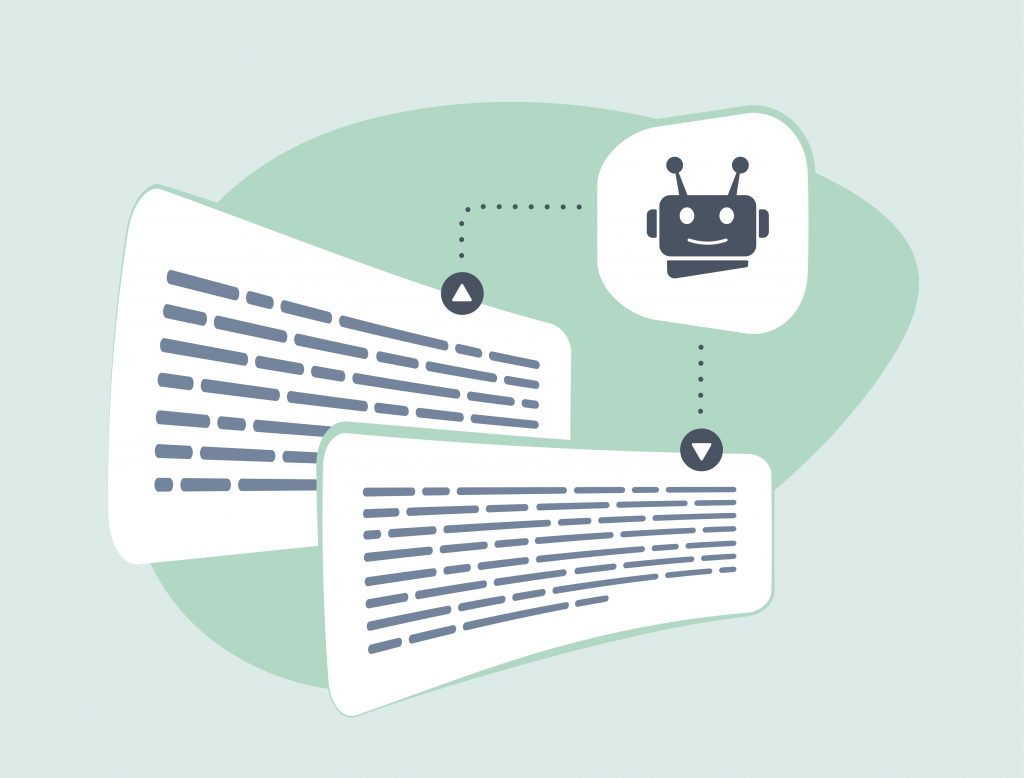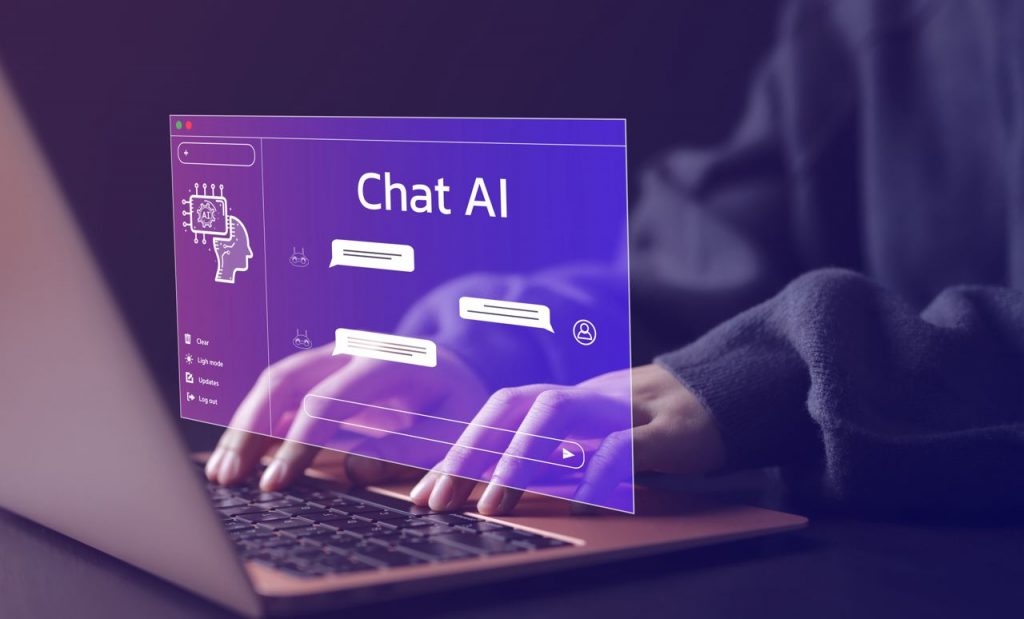In the digital age, consultation services are undergoing a transformative shift, driven by the integration of Artificial Intelligence (AI). From healthcare and legal sectors to marketing and education, AI is redefining the way consultation services are delivered and experienced. Let’s explore the future landscape of digital consultation services, enriched and enhanced by AI.

1. Healthcare Consultation: Virtual and Personalized
AI is revolutionizing digital healthcare consultation by enabling personalized and accessible care. Telehealth platforms, powered by AI, can provide preliminary consultations, analyze symptoms, and even suggest treatment plans. AI-driven applications like Babylon Health are pioneering this space, offering virtual consultations that are convenient and efficient.
Telehealth Platforms: Bridging Gaps
Telehealth platforms, powered by AI, are bridging the gap between healthcare professionals and patients, especially in remote or underserved areas. These platforms enable virtual consultations where patients can discuss their symptoms, receive preliminary diagnoses, and even get treatment recommendations without leaving their homes. This is particularly beneficial in times of public health crises, such as the COVID-19 pandemic, where minimizing physical contact is crucial.
AI-Driven Diagnostics: Precision and Speed

AI algorithms are capable of analyzing vast datasets swiftly and accurately. For instance, machine learning models can sift through medical literature, patient records, and clinical trial data to assist in diagnostics. Tools like IBM’s Watson Health can analyze medical images to detect anomalies, sometimes with higher accuracy than human doctors. This not only speeds up the diagnostic process but also ensures precision.
Personalized Treatment Plans: Tailored Care
AI is playing a pivotal role in personalizing healthcare consultation. By analyzing a patient’s medical history, genetics, and lifestyle factors, AI can help healthcare professionals devise personalized treatment plans. This approach, known as precision medicine, ensures that the treatment is tailored to the individual’s unique needs and is likely to be more effective.
Chatbots and Virtual Assistants: Always Available

AI-powered chatbots and virtual assistants are revolutionizing the way patients seek initial consultation. These tools can provide instant responses to health-related queries, assess symptoms, and guide patients on the next steps. For instance, platforms like Ada Health use AI to help users understand their symptoms and navigate to appropriate care.
Remote Monitoring and Wearables: Proactive Healthcare
Wearable devices integrated with AI can monitor health parameters such as heart rate, sleep patterns, and physical activity. These devices can provide real-time data to healthcare professionals, enabling proactive and preventive care. Remote monitoring ensures that any potential health issues are identified early, leading to timely intervention.
Challenges and Ethical Considerations
Despite the promising advancements, the integration of AI in healthcare consultation comes with challenges. Data privacy, security, and ethical considerations are paramount. Ensuring that AI algorithms are unbiased and that patient data is handled with utmost confidentiality is crucial. AI and ML technologies have vast potential to enhance existing solutions across a wide range of industries. FortySeven IT specialists can assist you in the implementation of AI and ML to drive innovation and efficiency into your existing or new business.
2. Legal Consultation: Swift and Accurate
AI is streamlining legal consultations by automating document analysis and legal research. Platforms like ROSS Intelligence use AI to process vast amounts of legal data, providing quick and accurate insights. Legal chatbots, such as DoNotPay, offer initial legal advice, democratizing access to legal information.
Predictive Analytics: Forecasting Legal Outcomes
AI is also being used in predictive analytics to forecast the outcomes of legal proceedings. By analyzing historical data and past case law, AI can predict how a judge might rule on a particular case or the likelihood of success on certain legal arguments. This can be invaluable for lawyers and clients in strategizing and making more informed decisions.
Legal Research: Streamlined and Sophisticated
Legal research is another area where AI is making a significant impact. AI-powered legal research tools can understand natural language queries and return relevant case law, statutes, and secondary sources in response. ROSS Intelligence, for example, uses AI to help lawyers conduct research more efficiently, reducing the time spent on finding precedents and relevant case law.
Chatbots and Virtual Legal Assistants: Accessible Legal Guidance
AI-driven chatbots and virtual legal assistants are democratizing access to legal information. These tools can provide users with legal information, draft simple legal documents, or guide them through legal procedures. DoNotPay started as a ‘robot lawyer’ helping users contest parking tickets but has since expanded to cover a wide range of legal services.
Contract Analysis and Management: Risk Mitigation
AI is also transforming contract analysis and management. AI systems can review contracts in bulk, identify clauses that deviate from the standard language, and flag potential risks. This not only saves time but also helps in mitigating risks by ensuring that contracts are compliant with relevant laws and regulations.
3. Financial Consultation: Robo-Advisors and Beyond
The financial sector has seen a surge in AI-driven digital consultation services. Robo-advisors, such as Betterment and Wealthfront, use AI algorithms to craft personalized investment strategies. AI can also predict market trends, enabling financial consultants to offer timely and data-backed advice.
Personalization at Scale
AI enables these platforms to offer a degree of personalization that was previously available only from high-end wealth management services. By analyzing additional data points, such as spending habits, social media activity, and even the economic climate, AI can tailor advice to the individual’s specific financial situation and risk tolerance.
Risk Management and Compliance
AI is also enhancing risk management and compliance in financial consultation. By analyzing historical data, AI can identify potential risk factors in investment strategies and suggest alternatives to mitigate those risks. Additionally, AI can ensure that financial advice complies with the ever-changing landscape of regulations, thus protecting both the client and the firm from potential legal issues. BizProspex provides you with extensive details of individuals who have undergone PEP screening and are listed on the international sanctions list to help alleviate the risks of dealing with illicit organizations.
Enhanced Customer Service
AI-driven chatbots and virtual assistants are improving customer service in financial consultation. They provide instant responses to client inquiries and can handle a range of tasks from answering basic questions about account balances to more complex queries about investment strategies.
Challenges and Ethical Considerations
However, the rise of AI in financial consultation is not without its challenges. The reliance on algorithms raises questions about the transparency of financial advice and the potential for systemic biases in automated investment strategies. Moreover, the impersonal nature of robo-advisors may not satisfy all clients, particularly those who value a relationship with a human advisor.
4. Digital Marketing Consultation: Targeted and Effective

AI is a game-changer in digital marketing consultation. By analyzing consumer behavior and preferences, AI can help businesses create targeted marketing campaigns. Tools like Salesforce Einstein use AI to optimize marketing strategies, ensuring higher engagement and conversion rates.
Data-Driven Insights and Personalization
AI excels in analyzing large volumes of data to extract meaningful insights. In digital marketing, this capability allows for a deep understanding of consumer behaviors, preferences, and patterns. AI-driven analytics tools can segment audiences with precision, enabling marketers to tailor their messaging and content to resonate with different groups. Personalization engines use AI to deliver content and recommendations that are aligned with individual user preferences, significantly improving conversion rates.
Predictive Customer Behavior Modeling
AI’s predictive capabilities are a boon for digital marketers. By leveraging historical data, AI can forecast future customer behaviors and preferences, allowing for the creation of proactive marketing strategies. This predictive power means that digital marketing consultants can anticipate trends and adapt campaigns before shifts in the market occur, staying one step ahead of the competition.
Predictive Analytics in Supply Chain Management
Supply chain predictive analytics is often associated with an ability to foresee what will happen in the future.
It helps to identify patterns and trends hidden in the data of a manufacturing enterprise to understand market trends, detect weak points or areas of possible risks, analyze the demand, and establish appropriate pricing strategies.
Optimizing User Experience with AI

User experience (UX) is critical for successful digital products, and AI enables consultants and UX agencies to optimize experiences in impactful ways. By gathering user feedback and interaction data, AI identifies pain points and friction in UX journeys. AI-powered testing and personalization engines then iterate design variations to boost engagement. With the ability to continuously learn and improve, AI-driven UX offers users a seamless, satisfying experience, increasing engagement, conversions, and loyalty.
Content Creation and Curation

AI is also stepping into the realm of content creation and curation. AI-powered tools can generate basic content for social media reports, news updates, social media posts and even create your website. Furthermore, AI can curate content for individual users, ensuring that they are engaged with articles, videos, and posts that are of interest to them, increasing the time spent on a platform and the likelihood of conversion.
Given that AI-driven content creation and curation are increasingly common, it’s crucial for brands to stand out not just with innovative AI tools but also by creating a distinctive brand identity that resonates with their audience. This is where the concept of ‘brandformance’ becomes essential. Brandformance is a comprehensive approach that combines brand and performance marketing into a single, unified strategy. It harnesses the dual power of compelling content and creative execution to deliver measurable results.
5. Educational Consultation: Tailored Learning Paths
AI is enhancing educational consultation by offering personalized learning experiences. Platforms like Knewton and DreamBox use AI to adapt content based on a student’s progress and learning style. Educational consultants can use AI to predict student performance and offer proactive guidance.
Adaptive Learning Platforms
AI-powered adaptive learning platforms are at the heart of this transformation. These platforms can analyze a student’s interactions and performance to adjust the difficulty level of tasks, the complexity of content, and the style of resources provided. Tools like DreamBox Learning and Smart Sparrow can tailor educational experiences, ensuring that each student is challenged appropriately and supported where necessary.
Predictive Analytics in Education
AI is also being used to predict student outcomes, which can be a powerful tool for educational consultants. By analyzing data on student performance, AI can identify those who are at risk of falling behind and those who could benefit from accelerated programs. This allows for early intervention and the allocation of resources where they are most needed, improving overall educational outcomes.
Personalized Learning Recommendations
Beyond adaptive learning platforms, AI can curate personalized learning recommendations for students. By understanding a student’s learning history, preferences, and future goals, AI can suggest courses, extracurricular activities, and even career paths. This level of personalization ensures that students are engaged and motivated, as their education feels more relevant to their aspirations.
Automating Administrative Tasks
AI is not only enhancing the learning experience but also streamlining administrative tasks. Educational consultants often spend a significant amount of time on tasks such as scheduling, grading, and reporting. AI can automate these processes, allowing consultants to focus on more high-value activities like one-on-one student interactions and curriculum development.
Virtual Mentors and Tutors
AI-driven virtual mentors and tutors are providing additional layers of support. These AI assistants can offer 24/7 help to students, answering questions, providing explanations, and guiding them through complex concepts. This constant availability can be particularly beneficial for students who may not have access to traditional tutoring services.
6. Business Consultation: Strategic and Data-Driven
AI is empowering business consultants to make data-driven decisions. Machine learning algorithms can analyze market trends, competitor strategies, and consumer behavior, providing actionable insights. AI tools can also automate routine tasks, allowing consultants to focus on strategic decision-making.
Customer Insights and Personalization
Understanding customer insights preferences and behaviors is key to any successful business strategy. AI-driven analytics platforms can delve into customer data to reveal patterns and preferences, which can be used to tailor products and services. This level of personalization not only enhances customer satisfaction but also drives loyalty and revenue. For instance, AI can help retailers predict what products will be popular in different regions and adjust their stock accordingly.
Competitive Intelligence
Business consultants are using AI to conduct competitive intelligence, gathering detailed information about competitors’ activities. By analyzing social media, news, and other digital footprints, AI can provide insights into competitors’ strategies, market positioning, and potential moves. This intelligence is crucial for businesses to stay ahead and adapt their strategies in a competitive landscape.
Risk Management
AI enhances risk management by identifying potential risks and suggesting mitigation strategies. By analyzing market trends and internal data, AI can forecast financial risks, operational risks, and even compliance risks. This predictive capability allows businesses to be proactive rather than reactive in their risk management strategies. At BizProspex we provide you with extensive details of individuals who have undergone PEP (Politically Exposed Persons) screening and are listed on the international sanctions list to help alleviate the risks of dealing with illicit organizations
Human Resource Optimization
AI is also revolutionizing the human resources aspect of business consultation. From talent acquisition to employee engagement and retention strategies, AI can help businesses optimize their workforce. AI-driven tools can analyze employee data to identify patterns and predict which employees are likely to excel or which might be at risk of leaving, allowing for timely interventions.
Challenges and Ethical Considerations
While AI offers numerous benefits, it also presents challenges, particularly in terms of ethics and job displacement. There is a growing need to address the ethical implications of AI decisions and to ensure that AI systems are transparent and fair. Additionally, as AI automates more tasks, there is concern over job displacement, and businesses must navigate these changes responsibly.
7. Customer Service: Chatbots and Virtual Assistants

AI-powered chatbots and virtual assistants are redefining customer service consultations. By providing instant responses and resolving queries efficiently, AI ensures a seamless customer experience. Platforms like ChatBot and Drift use AI to engage customers in real-time, improving satisfaction and loyalty.
Chatbots: The Front Line of Customer Service
Chatbots are AI systems that can communicate with users through text or voice interactions. They are programmed to simulate human conversation and are capable of handling a wide range of customer service tasks. From answering FAQs to guiding users through complex processes, chatbots are becoming the first point of contact for many e-commerce customer fulfillment services.
Virtual Assistants: Beyond Simple Queries
In customer service, virtual assistants are now capable of handling more complex queries. They can access customer accounts, track orders, and even provide personalized recommendations based on past interactions. As AI technology advances, these virtual assistants are becoming more adept at understanding natural language, making the interaction more intuitive and human-like.
Integrating Chatbots and Virtual Assistants with Human Agents
While AI can handle many customer service tasks, there are still situations where human intervention is necessary. The most effective customer service strategies involve a hybrid approach, where chatbots and virtual assistants handle routine queries and escalate more complex issues to human agents. This not only ensures that customers are receiving the most appropriate level of service but also allows human agents to focus on high-value interactions that require empathy and complex problem-solving.
Challenges and Future Directions
Despite the advancements in AI, there are still challenges to overcome. Misunderstandings can occur, especially with more complex queries or when customers use colloquial language. There is also the challenge of maintaining the human touch—ensuring that customer service doesn’t become impersonal as it becomes more automated.
Looking to the future, we can expect AI in customer service to become more sophisticated, with better natural language processing and deeper integration into business systems. AI will continue to learn from interactions, becoming more personalized and proactive—anticipating customer needs before they even contact customer service.

Conclusion
In conclusion, the future of digital consultation services is set to be defined by the integration of AI. By offering personalized, efficient, and data-driven services, AI is poised to transform the consultation landscape across various sectors. As we navigate this new frontier, the balance between technological innovation and ethical considerations will shape the trajectory of digital consultation services. The promise is clear: a future where digital consultation is not just smarter but also more accessible and impactful.



